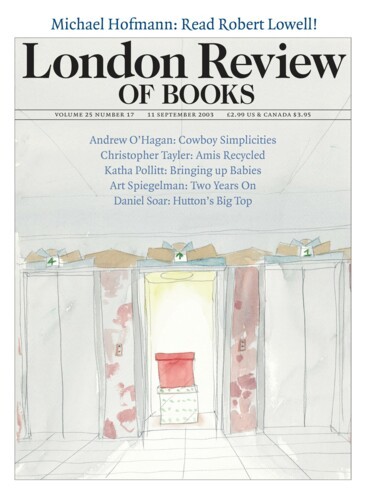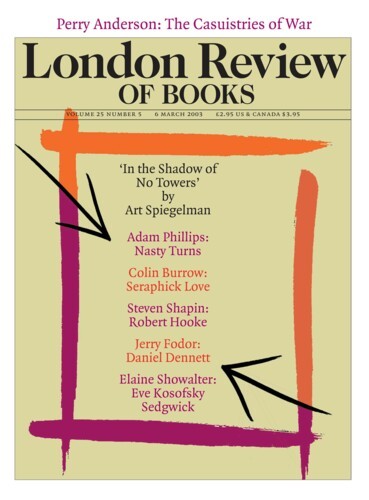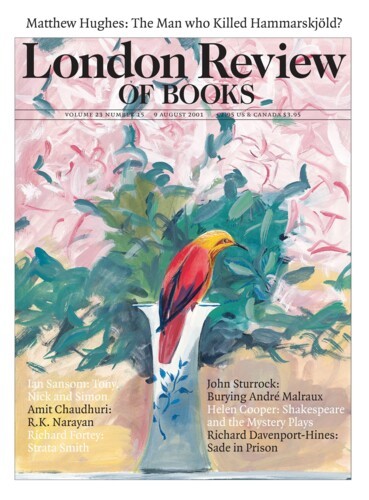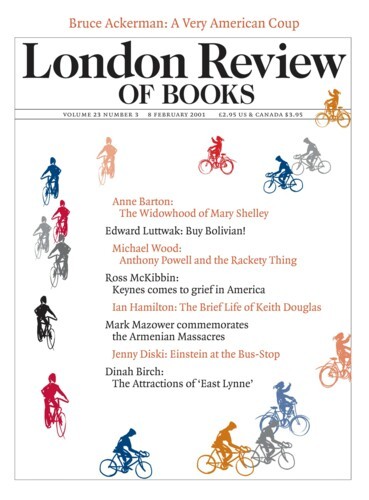The Eng. Lit. Patient: Andrew Motion
Jeremy Noel-Tod, 11 September 2003
John Keats John Keats John Please put your scarf on.
The author of these lines is J.D. Salinger’s fictional child-poet, Seymour Glass, showing a precocious acquaintance with literary history for an eight-year-old: his source seems to be an 1821 review of Adonais, Shelley’s elegy on Keats, in the Literary Gazette. The reviewer described the poem as a lament for
a foolish young...





